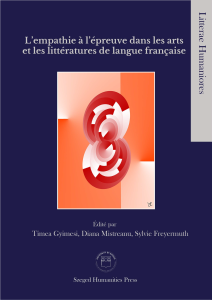Deux siècles de sollicitude: représentations de la servitude féminine d’Un Coeur simple à l’éthique du care
Über dieses Buch
Many are the memorable figures of servants, maids and housekeepers in nineteenth- and twentieth-century literature, whether or not these representations are inspired by the extratextual realities of contemporary society. It seems to us today that the literary career of this figure has undergone a certain, even important, evolution, so that one can identify two distinct lineages. Firstly, female figures inspiring a holy horror, mingled with a feeling of exoticism, compassion, attraction mixed with repugnance, and even a desire for otherness. Some cases come close to animalising women, as in Dezső Kosztolányi’s novel Anna Édes, where the seduction of the little maid inevitably leads to her downfall and criminalisation. It seems to us that since the sociological and ethical turn in literature, the figure of the maid has detached itself from these aftertastes, to enter an era of the ethics of care, of moral and feminist thought. If certain representations still seem to be attached to a poetics of horror and the news, perpetuating the tradition of Jean Genet’s The Maids and the exaltation of what the Surrealists called – it seems to us today, wrongly – hysteria (The Perfect Nanny), other texts, linked to an equally poetic sociological realism (the Montana School or Florence Aubenas’ documentary novel, The Night Cleaner) are part of a responsible, feminist revival of literature as an action on the present, concerned with “maintaining, perpetuating and repairing our world” ( Joan Tronto 1993).
Keywords: social realism, maid, hieratic code, care theory


